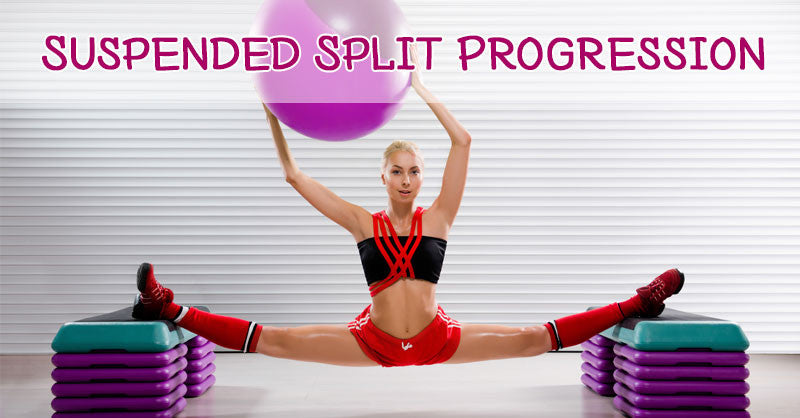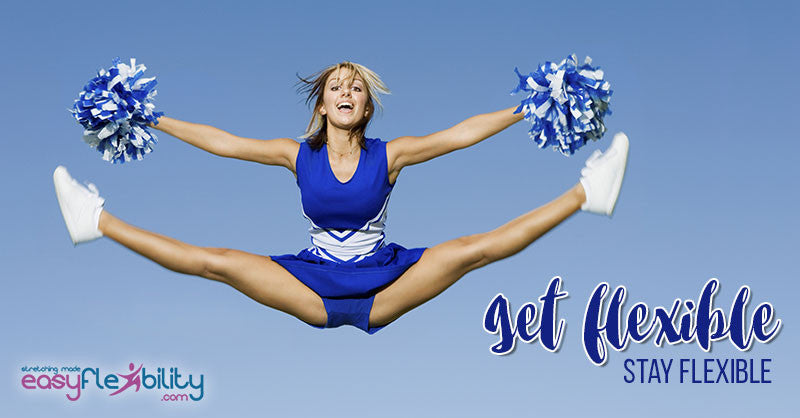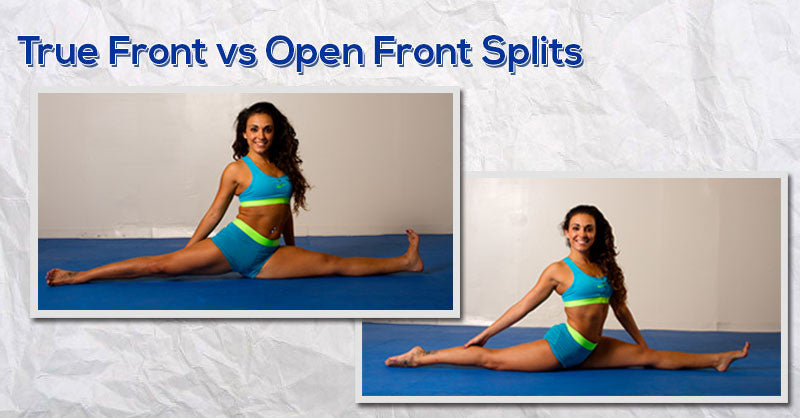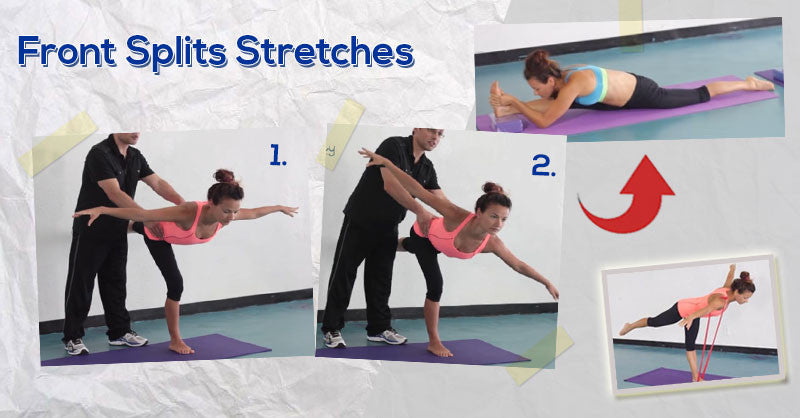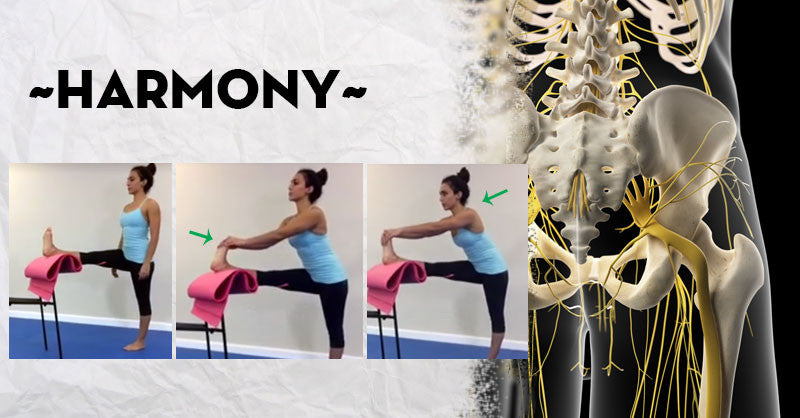Master Stomp and Shake Cheerleading: Techniques, Competitions, and Flexibility Training
Posted by EasyFlexibility Team on
Master Stomp and Shake Cheerleading: Techniques, Competitions, and Flexibility Training

What is Stomp and Shake Cheerleading?
Stomp and Shake cheerleading is a high-energy style known for rhythmic stomping, powerful body shakes, and sharp arm movements. This unique form of cheerleading is rooted in HBCU traditions, particularly Winston-Salem State University, and captivates audiences with its bold and dynamic moves. Incorporating flexibility and strength training is key for mastering these complex routines, allowing cheerleaders to execute higher jumps and sharper movements.
Who Invented Stomp and Shake Cheerleading?
Originating in the mid-20th century at HBCUs, stomp and shake cheerleading was popularized by Winston-Salem State University. This rhythmic style fuses athleticism with crowd engagement, emphasizing sharp foot stomps and powerful shakes to enhance each performance.
What is the Stomp Dance Called?
In stomp and shake, there isn't one specific dance called the "stomp dance." Rather, it refers to a collection of synchronized foot stomps, claps, and energetic body movements used to complement cheer routines. These elements combine to create high-impact performances, blending dance and vocal cheers.
How to Stand Out in Stomp and Shake Tryouts
-
Stronger Shakes:
Isolate your hips while shaking to make your movements fluid and powerful. Practicing in front of a mirror allows you to perfect your timing and rhythm. Watching top stomp and shake routines on YouTube will also help you refine your technique. -
Clean Transitions:
Focus on balancing sharp arm movements with fluid hip motions for smooth transitions. This is especially important when transitioning between stomps, claps, and stunts in cheerleading competitions, ensuring your performance remains polished. -
Mastering the "Yeowl":
Vocal ad-libs like "Yieoww" or "EEE-yoop" add personality to your routine. Practice these alongside your cheers to ensure they sound natural and fit into the rhythm of your routine. -
Achieving the Cheer Voice:
Use your diaphragm to project your voice clearly and with power. Strong projection helps your voice carry through large crowds, ensuring that your commands are heard. Practice deep breathing exercises to develop control over your vocal power.
Unlock your full cheerleading potential with the EasyFlexibility Cheerleading Combo Program! Designed specifically for cheerleaders, this program helps you master high jumps, sharp stunts, and smooth flexibility transitions. With expert guidance and targeted flexibility exercises, you’ll see improved performance, reduced risk of injury, and faster recovery. Whether you’re preparing for tryouts or competitions, this comprehensive program provides the tools you need to excel. Get ready to take your cheerleading skills to the next level!
10 Stomp and Shake Ideas to Try
Here are 10 high-energy stomp and shake cheers you can incorporate into your routine:
-
Hit 'Em With a Boom
Sharp stomps and synchronized arm motions create a powerful chant to pump up the crowd. -
Slide and Slay
This cheer combines sliding footwork with smooth transitions, blending control and power. -
Bring the Heat
A fast-paced, energetic cheer that uses claps and body shakes to build intensity in cheerleading competitions. -
Turn Up the Volume
A cheer focused on vocal projection, paired with stomps to amplify energy on the field. -
Crank It Up
This cheer highlights flexibility and timing with leg kicks and well-timed stomps. -
Fire It Up
Incorporating body shakes with energetic stomps, this routine keeps the energy level high. -
Thunder Clap
A crowd-pleasing cheer that uses synchronized stomps and claps, creating a thunderous effect. -
Step It Out
This cheer emphasizes intricate footwork, requiring precise timing and control. -
Let’s Go, Let's Go
A rhythmic call-and-response chant with stomps punctuating each word, perfect for competitions. -
Pump It Up
A cheer that builds intensity with body shakes and powerful arm movements, finishing strong.
For more ideas, explore the Pinterest page.
Best Stomp and Shake Cheerleading Competitions
Top stomp and shake competitions are held across the U.S., particularly at HBCUs. Notable competitions include:
- CIAA Cheerleading Championship: This highly regarded competition showcases the best stomp and shake cheerleading teams from HBCUs.
- MEAC Cheerleading Championship: A premier event for stomp and shake cheerleading in the Mid-Eastern Athletic Conference.
- National Stomp N Shake Cheerleading Competition: Featuring teams from across the country, this competition highlights stomp and shake's best routines.
How EasyFlexibility Can Help Stomp and Shake Cheerleaders
Stomp and Shake cheerleading requires a unique combination of flexibility, strength, and injury prevention. The EasyFlexibility Cheerleading Program provides targeted stretching routines that help cheerleaders improve flexibility in their legs, hips, and back. By increasing flexibility, cheerleaders can execute higher jumps, more fluid kicks, and sharper movements.
Testimonial from a Cheerleader:
"EasyFlexibility has helped my squad improve our flexibility dramatically. We’re jumping higher, our movements are cleaner, and we’ve had fewer injuries!" – Sarah L., Cheerleading Coach
Check out the EasyFlexibility Cheerleading Program for flexibility training tailored to cheerleaders.
Unlock your full cheerleading potential with the EasyFlexibility Cheerleading Combo Program! Designed specifically for cheerleaders, this program helps you master high jumps, sharp stunts, and smooth flexibility transitions. With expert guidance and targeted flexibility exercises, you’ll see improved performance, reduced risk of injury, and faster recovery. Whether you’re preparing for tryouts or competitions, this comprehensive program provides the tools you need to excel. Get ready to take your cheerleading skills to the next level!
Recommended Stretches for Stomp and Shake Cheerleaders
- Hamstring Stretch: Improves flexibility for higher jumps and safer landings.
- Lunges: Builds leg strength and balance, essential for powerful stomps.
- Pike Stretch: Increases leg flexibility, helping cheerleaders reach higher kicks.
For a full routine, explore the EasyFlexibility Cheerleading Program.
Frequently Asked Questions About Stomp and Shake Cheerleading
1. What is Stomp and Shake Cheerleading?
Stomp and Shake is a unique style of cheerleading characterized by rhythmic stomping, sharp body shakes, and powerful vocal chants. Originating in HBCUs, it emphasizes synchronized movements that are both visual and auditory.
2. What are the origins of Stomp and Shake Cheerleading?
It originated at Historically Black Colleges and Universities (HBCUs) like Winston-Salem State University in the mid-20th century. It has grown in popularity, known for its crowd-engaging energy and cultural significance.
3. How can I improve my flexibility for Stomp and Shake routines?
Improving flexibility is key for mastering the high jumps and sharp motions involved in stomp and shake cheerleading. The EasyFlexibility Cheerleading Program offers a range of flexibility routines that target hamstrings, hips, and back muscles. Regular stretching, such as hamstring stretches and pike stretches, can enhance flexibility.
4. What are the best Stomp and Shake cheerleading competitions?
Some of the top competitions include the CIAA Cheerleading Championship, MEAC Cheerleading Championship, and the National Stomp N Shake Cheerleading Competition. These events showcase the best stomp and shake routines, offering a platform for cheerleaders to perform in front of large audiences.
5. How can I make my stomp and shake movements stronger and cleaner?
To make your shakes stronger, focus on isolating your hips and practice regularly in front of a mirror. Make sure your movements are in sync with the rhythm of the cheer. Sharp arm motions combined with fluid stomps make for cleaner transitions in routines.
6. How do you project your voice in cheerleading?
To project your voice clearly and powerfully, use your diaphragm rather than your throat. This allows for greater volume and clarity without straining your vocal cords. Practicing deep breathing exercises helps develop control over your voice, ensuring that your cheers can be heard by the entire crowd.
7. How do I improve jumps in cheerleading?
Improving jumps requires a combination of strength and flexibility. Lunges and hamstring stretches can increase your leg flexibility and power, helping you achieve higher, sharper jumps. The EasyFlexibility program offers routines specifically designed to enhance these skills.
8. What is the "Yeowl" sound in stomp and shake?
The "Yeowl" sound is a high-pitched vocal ad-lib, similar to the "Skee-wee" used by the AKA sorority. It’s often used to add energy and excitement to a routine. To master this, practice finding a comfortable pitch that fits naturally into your cheerleading chants.
9. How do I avoid injuries in stomp and shake cheerleading?
Injury prevention starts with proper warm-ups and flexibility training. Stretching before and after practices, especially targeting the legs, back, and shoulders, helps reduce the risk of strains. Incorporating flexibility routines like those in the EasyFlexibility Cheerleading Program can also keep your body limber and resilient.
10. What are the best flexibility exercises for cheerleaders?
Key flexibility exercises for cheerleaders include hamstring stretches, pike stretches, and lunges. These exercises target the muscles most used in cheerleading, improving range of motion for jumps, kicks, and stunts. For more advanced flexibility training, consider the EasyFlexibility Cheerleading Program.
By addressing these common concerns, cheerleaders can enhance their performance, stand out in competitions, and reduce their risk of injury. Make sure to integrate flexibility training and practice regularly for the best results.
Unlock your full cheerleading potential with the EasyFlexibility Cheerleading Combo Program! Designed specifically for cheerleaders, this program helps you master high jumps, sharp stunts, and smooth flexibility transitions. With expert guidance and targeted flexibility exercises, you’ll see improved performance, reduced risk of injury, and faster recovery. Whether you’re preparing for tryouts or competitions, this comprehensive program provides the tools you need to excel. Get ready to take your cheerleading skills to the next level!



